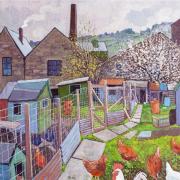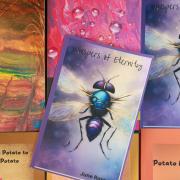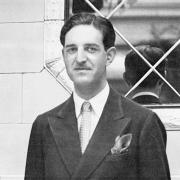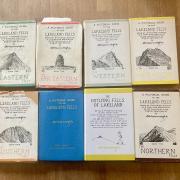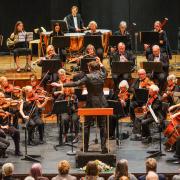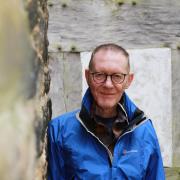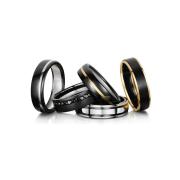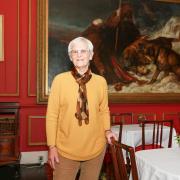Coronavirus has made fundamental changes to all our lives – and deaths. A Hyndburn undertaker who has seen many changes since she started as a teenager says the pandemic could change the way we approach funerals.

In recent months we have all been forced to confront the stark reality of death. Coronavirus has claimed more than 45,000 lives across the country and behind each grim statistic in the news is a grieving family mourning the loss of a loved one.
And Lianna Champ has more experience than most of the suffering that has been caused by the Covid-19 pandemic.
Once the youngest female undertaker in the country, she has seen the profession – and our attitudes to death – change dramatically in the last 30 years. And she says coronavirus has been the catalyst for another shift in our views which could have a lasting impact on how funerals happen.
‘I think people are becoming more aware of the type of person they are and that will influence the type of funeral they want, she said. ‘I think we’ll always need certain rituals but I expect funerals will become more functional and the celebration of life will become bigger.

‘The end of someone’s life is a huge event. It’s the end of your physical relationship with them, but the emotional relationship continues until the day you die.’
Now 56, Lianna knew she wanted to be an undertaker when she was in primary school, in spite of teasing from school friends and efforts by her mum to put her off the idea.
‘My mother said when I was about nine I would tell her I wanted to be an undertaker,’ Lianna said. ‘I always used to feel sadness for certain people and I had an urge to stop people being sad. When I was 15 my mum rang a funeral home and asked if they’d let me help out for a couple of hours on a Saturday morning and asked them to do their best to put me off.
‘She dropped me off and I was taken straight in to the mortuary where there was a body from a post mortem. I hadn’t really equated being an undertaker with bodies, I still view myself as working with the living, dealing with bodies is a small part of what undertakers do.

‘When my mum came back I was gowned up and masked up and helping to suture. That couple of hours just made me even more determined and I was so pleased when the funeral home said I could go back the following week.
‘The careers advisor at school said I might as well want to be an astronaut as an undertaker because I had no chance of either because they weren’t jobs for girls but I knocked the door of every funeral home. I lost count of how many times I was told it was no place for a slip of a girl but I kept on and was eventually taken on at a local funeral home.’
She opened her own funeral home in Clayton-le-Moors in the mid-1980s when she was just 21 and says her views on an undertaker’s role haven’t changed.
‘I see my role as helping people and giving them hope,’ she added. ‘I feel comfortable and useful in that situation. And I feel blessed to do something I love so much.
‘When I was just starting in the profession as a teenager it was very much a man’s world and there were lots of inuendoes and comments made to me, and no-one was really willing to teach me, I had to learn things for myself. It’s a much more welcoming and open environment now.’
But whatever she has learned, the events of recent months have changed everything, with socially distant funerals attended only by a small number close family and friends, wakes held over Zoom and many people not having a chance to pay their respects.
‘These have been very difficult times, people have been unable to see their loved ones in hospital and to say goodbye,’ added Lianna, who now employs eight people.
‘It’s been hard to see people standing alone at funerals and for no-one to be able to go to them and support them. It’s human nature at times like that to reach out to people, so at emotional times it goes against all our instincts to stay apart. A hug says more than a million words, but we can still reach out with love and with our words and that is more important than ever now.
‘Funerals have been stripped down but we are becoming more creative – we’re streaming funerals and encouraging people to use Zoom to share memories, light a candle together or raise a toast.
‘It can be hard to lose a loved one and being isolated makes it more difficult and without having a support network around them people are perhaps keeping their grief inside. I encourage them to speak to someone because talking can make us feel less alone - that connection will get us through this. We don’t want huge numbers of people full of unresolved grief in the future.’
Lianna’s book, How to Grieve Like a Champ, came out in 2018.






